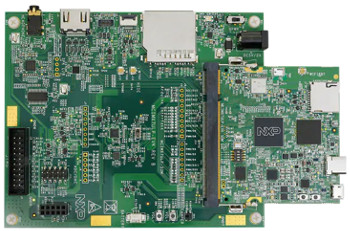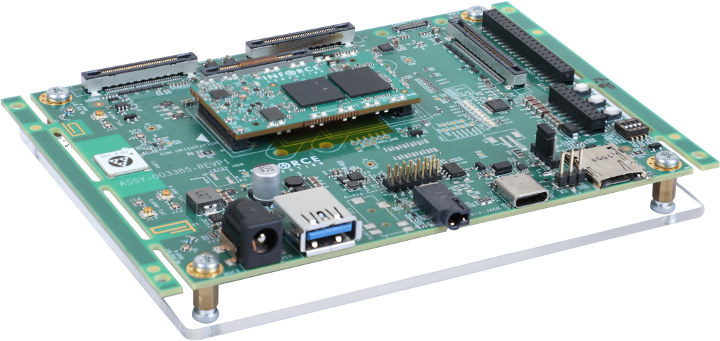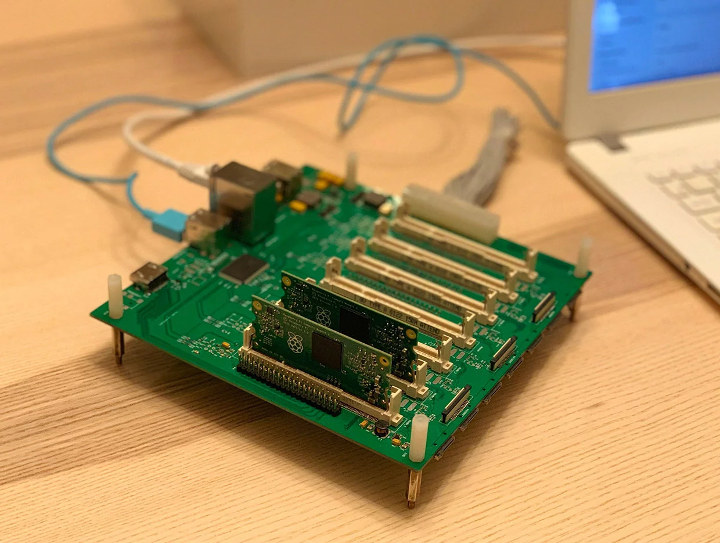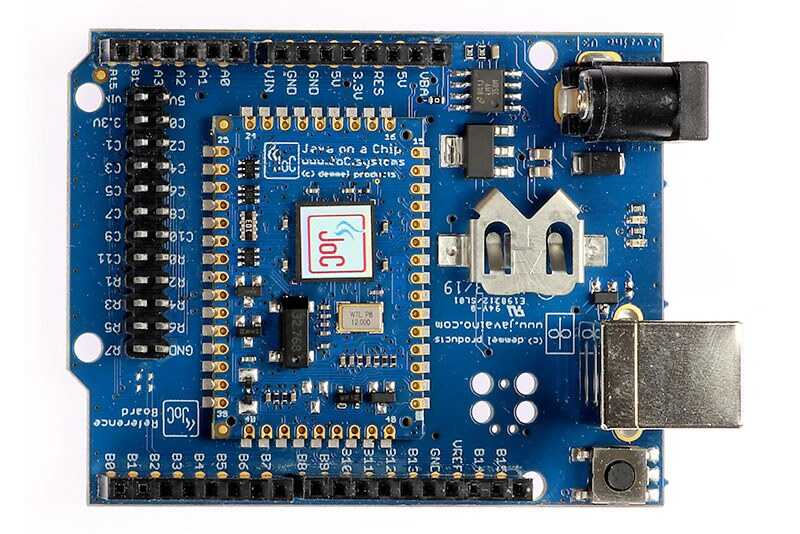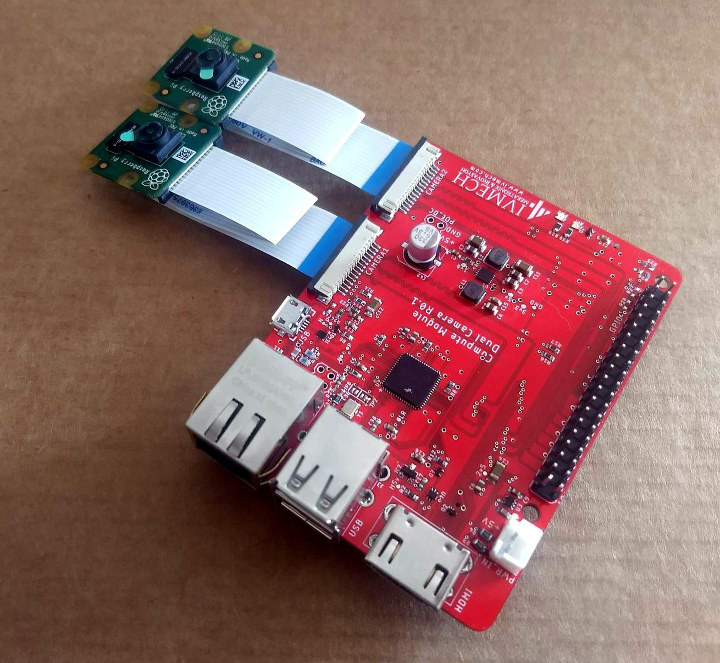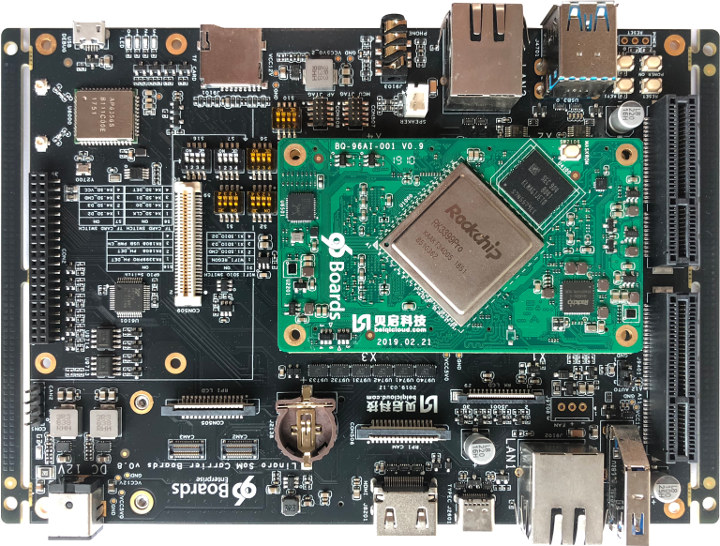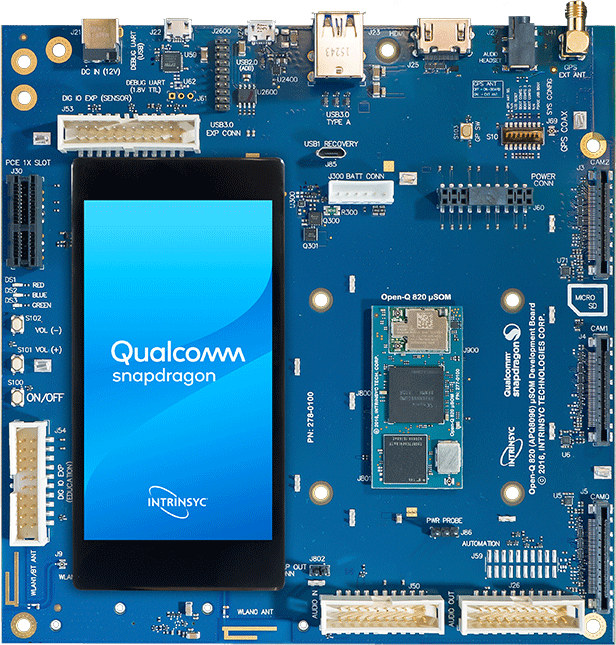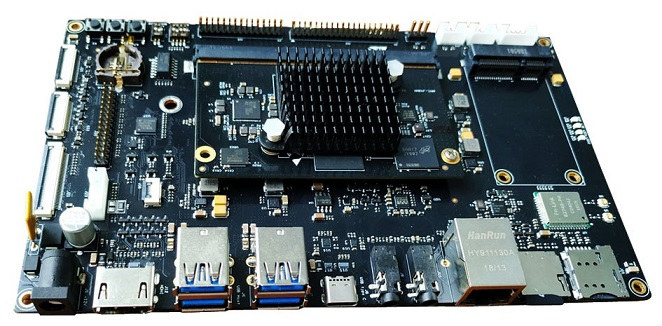Last year, we wrote about F&S Elektronik Systeme PicoCORE MX7 system-on-module (SoM) powered by NXP i.MX 7ULP processor manufactured with a 28nm FD-SOI process, and that was announced a year earlier. The official launch of the module was planned for Q3 2018, but there have been some delays as LinuxGizmos reports NXP has only started mass production of their i.MX7 ULP this June. With the official launch of i.MX 7ULP, the company also introduced the official i.MX 7ULP Evaluation Board (MCIMX7ULP-EVK) as showcased on Element14’s community and several other companies announced i.MX 7ULP systems-on-modules. Benefits of NXP i.MX 7ULP Processor The i.MX7 ULP family of processors is an extremely power-efficient series, that is utilizing lower power for more functions. The SoC is being touted as the most power-efficient processor that can be obtained that also houses a 3D GPU. Although like the i.MX7, the i.MX 7ULP combines both Cortex-A7 and […]
Inforce Introduces Snapdragon 660 & 845 Modules with On-Device AI
Inforce Computing has just launched two new pin-compatible system-on-modules, namely Inforce 6502 and Inforce 6701, powered by Qualcomm Snapdragon 660 & Snapdragon 845 SoC respectively. In their newsletter, the company claims those are their first modules with on-device AI capabilities with the Snapdragon 660 enabling “advanced visual computing, enhanced graphics and on-device machine learning capabilities”, while the more powerful Snapdragon 845 is better suited for “immersive multimedia experiences including optimized AI performance for a more responsive, power-efficient user- experience and capture of cinema-grade videos in UHD@60fps resolution. Inforce 6502 Snapdragon 660 SoM Specifications: SoC – Qualcomm Snapdragon 660 with 8-core Kryo 260 processor, Adreno 512 GPU, Qualcomm Hexagon 680 DSP with Hexagon Vector eXtensions (HVX) for Caffe2 and Tensorflow System Memory & Storage – 3GB LPDDR4, Dual-Channel + 32GB eMMC flash in single eMCP package Connectivity Bluetooth 5.0 + Wi-Fi 5 802.11ac 2×2 with MU-MIMO and Dual Band Simultaneous (DBS) […]
Turing Pi Clusterboard Takes up to 7 Raspberry Pi Compute Modules
We’ve already covered several cluster solutions based on Raspberry Pi boards such as Bitscope Blade with up to 40 Raspberry Pi boards, a 16 Raspberry Pi Zero cluster board prototype, Circumference “datacenter-in-a-box” with up to 32 Raspberry Pi 3 B+ boards. If you want something more compact, it makes sense to develop a platform with Raspberry Pi Compute Modules instead, and we’ve already published news about MiniNodes Raspberry Pi 3 CoM Carrier Board that supports up to to 5 Compute Modules 3/3+ last year. There’s now another option with Turing Pi Clusterboard support up to 7 Compute Modules for applications leveraging Kubernetes, Docker, Jupyter Notebook, machine learning (TensorFlow/Caffe), and serverless stack. Turing Pi specifications: 7x Sockets for Raspberry Pi Compute Module 3/3+ Storage – 7x microSD card slots Video Output – 1x HDMI port, MIPI DSI connector Audio – 1x 3.5mm audio jack Camera I/F – 2x MIPI CSI connectors […]
Javaino JoC Reference Board & Module Bring Java to the Embedded World
There is a Java-programmable module on the block. The module is going to change the face of programming and make things easier. The Java-on-Chip (JoC) module was designed by the Austrian manufacturer, Demmel. This module minimizes programming and development time of smart applications. The first thing to remember is that commercially embedded systems are developed with programmable languages, and they typically employ the use of either the C language or assembly. However, Demmel has made this new module and board specifically for Java programmers. The Java-programmable module is designed to work with the Javaino JoC reference board. Another thing about the JoC module is that it radically shortens development times. Furthermore, it simplifies PCB design efforts and also reduces programming effort. Also, the Java-programmable module comes as a tiny 24 × 36-mm module. As a matter of fact, it offers a diverse selection of interface options. Now, these options can […]
Ivport Stereo CM Breakout board for Raspberry Pi Compute Module Supports Two Cameras
We’ve previously written about IVport V2 camera multiplexer board that can connect up to 16 cameras to a single Raspberry Pi board in order to create 360 degrees camera setups for example. The company also offered a version with two cameras for stereo recording and capturing modes. But if you’d rather use a Raspberry Pi Compute Module with or without eMMC flash, and use either Raspberry Pi camera V1 or V2, the company has launched Ivport Stereo CM breakout board with support for up to two cameras and exposing some extra ports. Ivport Stereo CM specifications: RPi module compatibility Raspberry Pi CM1 Raspberry Pi CM3 (eMMC equipped) Raspberry Pi CM3 Lite Raspberry Pi CM3+ (eMMC equipped) Raspberry Pi CM3+ Lite RPi camera compatibility Raspberry Pi Camera Module V1.3 (OV5647 sensor) Raspberry Pi Camera Module V2 (Sony IMX 219 sensor) Storage – microSD slot Video Output – HDMI Networking – 10/100M […]
96Boards RK1808 & RK3399Pro SoM & Devkit Now Available for Purchase
Back in April, we covered the very first 96Boards SoM’s (Systems-on-Module) which were based on Rockchip RK3399Pro or RK1808 processors, and targeted applications leveraging artificial intelligence acceleration. There were not quite available at the time, but Seeed Studio now has both BeiQi modules for pre-order for $119 and $59 respectively, while the carrier board goes with $125 with antennas, and power supply. Note that the RK3399Pro SoM and the carrier board are basically available now with shipping schedule for July 4th, but you’d had to wait until the end of the month for the RK1808 module. BeiQi RK1808 AIoT 96Boards Compute SoM Module specifications: SoC – Rockchip RK1808 dual-core Arm Cortex-A35 processor @ 1.6 GHz with NPU supporting 8-bit/16-bit operations up to 3.0 TOPS, TensorFlow and Caffe frameworks; 22nm FD-SOI process System Memory – 1GB LPDDR3 (I also read “4GB LPDRR3” (sic.) in other places, but the capacity is likely […]
Intrinsyc Open-Q 820Pro SoM Comes with a Faster Snapdragon 820E Processor, 4GB RAM
Intrinsyc Open-Q 820 system-on-module was introduced in 2017 with a Qualcomm Snapdragon 820 processor, 3GB RAM, and a built-in wireless module for 802.11ac WiFi 5, and Bluetooth 4.1 connectivity. The company has now announced an almost identical ultra-compact module but based on Qualcomm Snapdragon 820E and featuring 4GB RAM. Open-Q 820Pro μSoM is a drop-in replacement for Open-Q820 requiring only some software changes. Snapdragon 820E is said to deliver 9% faster CPU and 5% faster GPU speeds at the same power consumption compared to Snapdragon 820. Open-Q 820Pro μSoM specifications: SoC – Qualcomm Snapdragon 820E (APQ8096SG) Embedded Platform with four Kryo cores including 2x cores @ up to 2.342GHz, and 2x cores @ up to 1.6GHz, Adreno 530 GPU @ 652.8 MHz, Hexagon 680 DSP @ 825 MHz System Memory – Dual-channel 4 GB LPDDR4 @ 1866 MHz (PoP) Storage – 32 GB UFS 2.0 1-lane gear3 flash Connectivity Pre-certified […]
MYiR Launches MYC-JX8MX CPU Module & MYD-JX8MX Devkit Powered by NXP i.MX 8M Processor
MYiR Tech Limited (aka MYiR) has launched a new NXP i.MX 8 CPU module – MYC-JX8MX – powered by NXP i.MX 8M processor, as well as the corresponding MYD-JX8MX development kit. The module integrates up to 2GB LPDDR4 RAM, 8GB eMMC flash, 256Mbit QSPI Flash, Gigabit Ethernet PHY & PMIC onboard, and I/O signals are accessible from a 314-pin MXM 3.0 expansion connector. Typical applications for the company’s latest system-on-module include scanning/imaging solutions, building automation and smart home, human-machine interface (HMI), machine vision or other consumer and industrial applications requiring multimedia capabilities. MYC-JX8MX CPU Module Specifications: SoC – NXP i.MX 8M quad-core Arm Cortex-A53 processor @ 1.3GHz, Arm Cortex-M4 real-time core @ 266MHz, 2D and 3D GPU System Memory – 1GB or 2 GB LPDDR4 (supports up to 4GB LPDDR4) Storage – 8GB eMMC Flash (supports up to 64GB), 256Mbit QSPI Flash 314-pin MXM 3.0 edge connector with: 1x Gigabit […]


